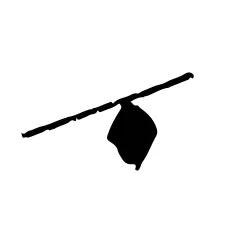
Editorial| In solidarity with Palestinian journalists, Al Manassa goes dark
Because Israel is killing journalists, and the world lets it.
Israel insists on updating its criminal record, relentlessly, unapologetically, and soaked in blood.
In its latest war on Gaza, it has added genocide, mass displacement, and deliberate starvation to a long-standing portfolio of apartheid and settler-colonial occupation. And to cover up these crimes, it deemed it necessary to bomb every pen, smash every camera, and silence every voice; it has deemed it necessary to kill journalists.
Israel bars world reporters from entering Gaza, denying them the chance to share the burden with their Palestinian colleagues in exposing the horrors of this war, and its violations. As for the Palestinian journalists, Israel kills them, methodically. One by one. Since Oct. 7, 2023, the toll has reached 246 Palestinian journalists, women and men alike.
For them—for every one of them—Al Manassa is blacking out its homepage for 24 hours on Monday, Sept. 1, 2025 as we join more than 250 media outlets in over 50 countries in a campaign organized by Avaaz and Reporters Without Borders/RSF.
This is not mourning. Mourning would come after justice and accountability.
This is rage at the fact that those who murdered our colleagues continue to get away with it. Rage at the impunity and the silence. As much as it is a demand for accountability, for prosecution, for justice.
We declare our full, unwavering solidarity with the journalists who remain in Palestine. We call for their protection. And we demand that the Egyptian government exert real pressure on the occupying state to stop the genocide, end the weaponization of hunger, and take immediate steps to allow Egyptian journalists to enter Gaza and support their colleagues.
Since the first day of this war, Israel has killed journalists in batches, with a brutal rhythm. The latest massacre came just last Monday, when Israeli forces bombed the Nasser Medical Complex in Gaza; a war crime. 15 people were killed, including five journalists who would have documented the massacre, had they not become its victims.
Israel killed freelance photojournalist Maryam Abu Dagga, who worked with AP and Independent Arabia.
Israel killed Al Jazeera cameraman Mohammed Salama.
Israel killed freelance videographer Hussam Al-Masri, who worked with Reuters.
Israel killed photojournalist Muath Abu Taha, who worked with NBC.
Israel killed journalist Ahmed Abu Aziz, who reported for local Palestinian platforms and Tunisia’s Diwan FM.
Yes, there is repetition here that clashes with journalistic brevity and concision. But it is deliberate, because murder demands a subject.
These journalists did not “die.” They were not “caught in the crossfire.” They were killed. And someone killed them.
This is what most coverage in Arab and international capitals refuses to say. These reports build murder on passive grammar, as if no one pulled the trigger. The killer walks away under the cover of “professional neutrality,” while readers are served euphemisms and probabilities in place of truth.
Israel has now killed more journalists in this war than any state has in any war since the world supposedly agreed to protect journalists in conflict zones. Yet it did not need this bloodshed to claim the title of journalism’s most dangerous enemy.
By the end of 2023, after killing 106 journalists, RSF declared Gaza the deadliest place in the world for journalists even though it acknowledged only 13 killings, dismissing the rest because they occurred “outside working hours.”
Now, Israel is trying to wash its hands. The murderer says he “regrets” the deaths of five journalists. He lies, claiming Israel did not target them deliberately. He calls it a “tragic mishap”. As if we didn’t all see the Israeli occupation army boast just weeks ago about killing our colleague, Al Jazeera’s Anas Al-Sharif, falsely claiming he was part of a Hamas cell, while some media outlets didn’t take that slander seriously, reducing the fact that he was a journalist to a mere allegation.
Before they get killed, Gaza journalists suffer as all Palestinians in the Strip do. Last month, AFP expressed fear that its own reporters in Gaza could die of hunger. Here at Al Manassa, we live in permanent fear for our Gaza correspondent, Salem Elrayyes.
In the heart of Gaza, we have our colleague Salem—an extension of our newsroom, a pillar of our team. In Cairo, we have other colleagues who managed to escape, back when the Rafah crossing still offered a slim chance at survival for those who could afford it. Salem Elrayyes had -then- the chance to leave but he refused. He sent his children away with their aunt and stayed back with his wife, also a journalist, Nour Salem. They chose to stay and do their job.
Since the very first day of this genocidal war, journalists have been there: documenting, exposing, and resisting. The phrase “this is genocide live on air” has been repeated so often it’s become a cliché. But it is only “live” because those journalists are still there.
To stop that broadcast, Israel is killing them.
But no one will be spared from the consequences. The crimes committed “live on air” will not expire. Power balances always shift.
Because these journalists stood their ground and did their jobs, Israel’s long-standing narrative—worshiped like a totem and shielded from scrutiny—has begun to crack.
But at the rate journalists are being killed by the Israeli occupation army, there will soon be no one left to keep you informed.
Published opinions reflect the views of its authors, not necessarily those of Al Manassa.
